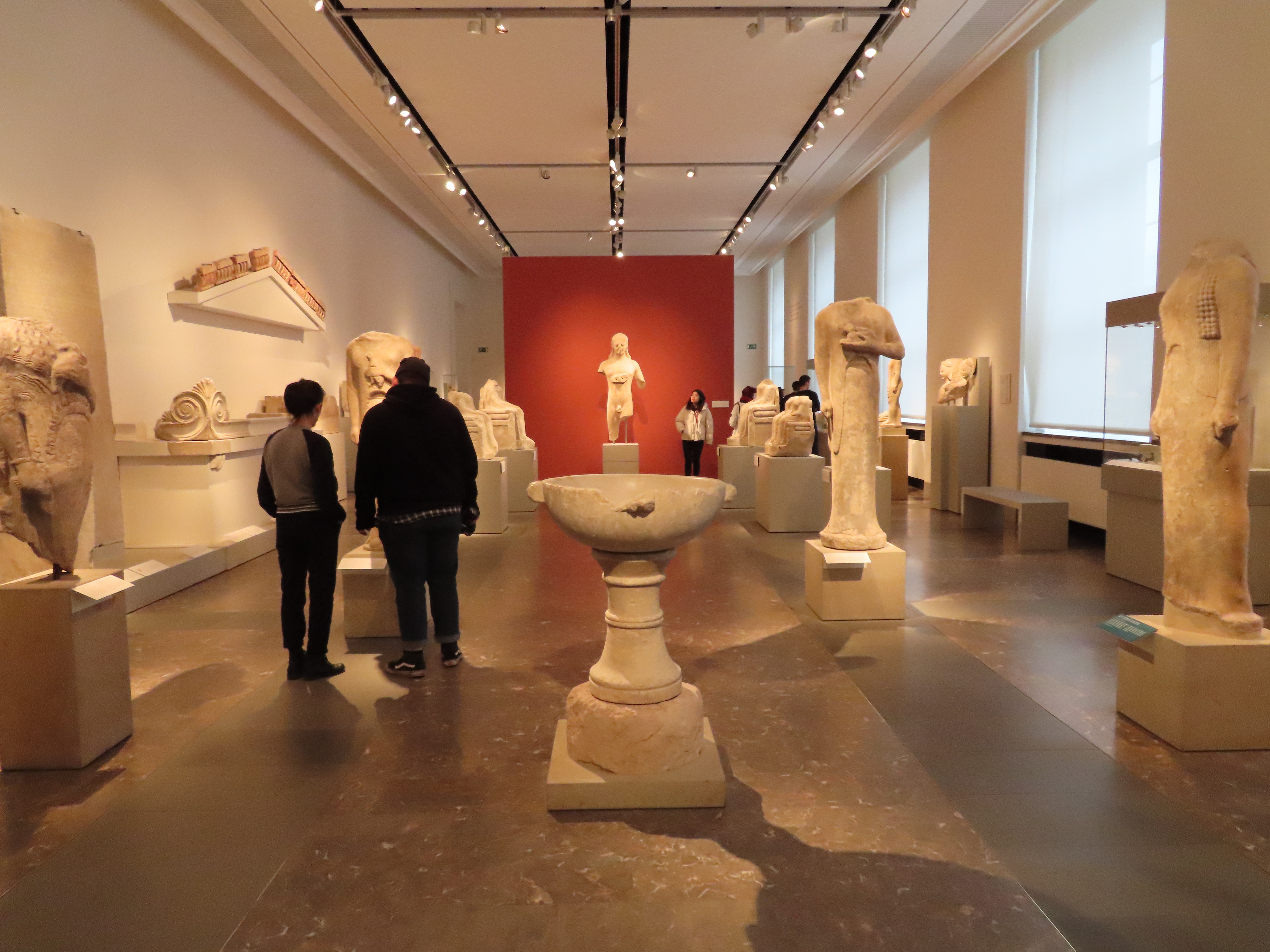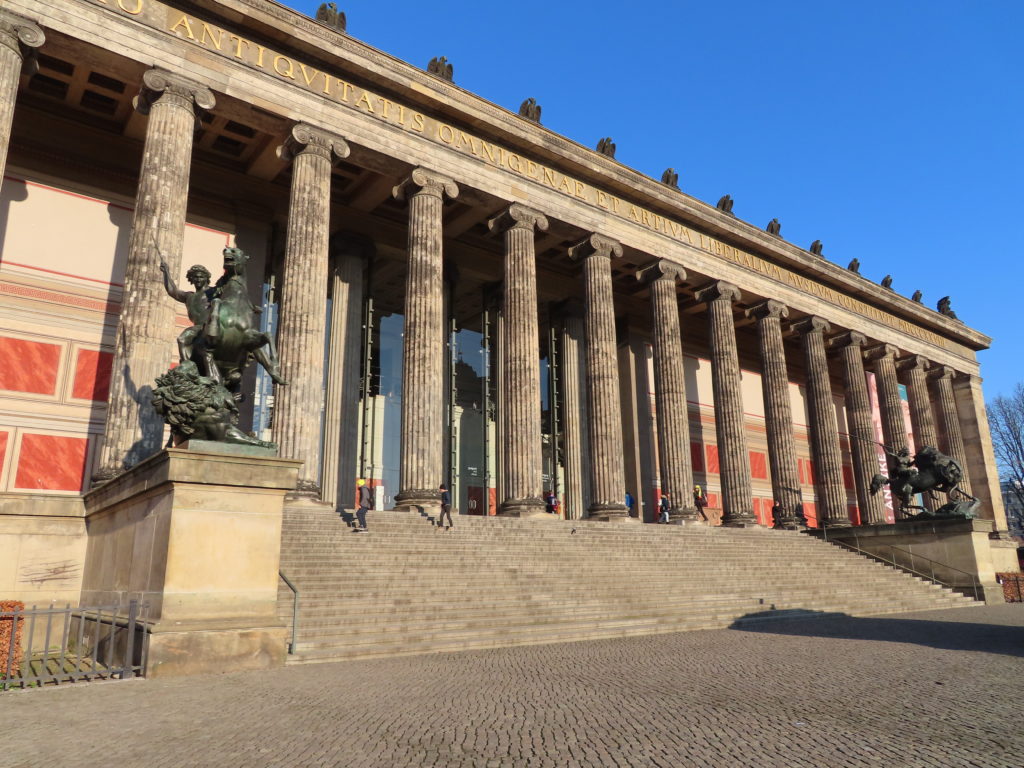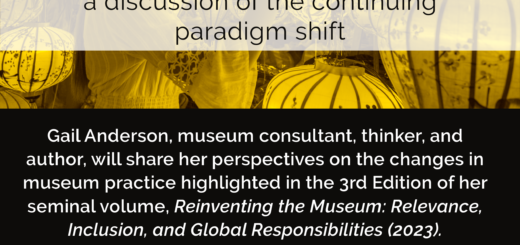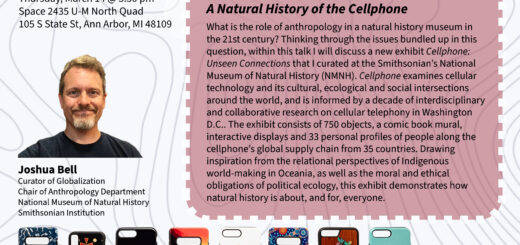A Letter from Berlin, Germany in the time of COVID-19

Museum Island (Museumsinsel) is a magical place, an area that houses multiple museums on a small island in Berlin, Germany. I had the pleasure of working with the Deputy Director of the Antikensammlung, which is the ancient art collection that is spread among different museums on the island. Because I am a trained classical archaeologist, my primary interest was the display of ancient art in the Altes Museum, which exhibits ancient Greek, Etruscan, and Roman art. My research project set out to investigate the following question: what does the future of exhibiting ancient art look like? The project involved exploring the various ways in which ancient art is on display in the museums on Museum Island in Berlin, comparing these displays to one another, and then investigating how their techniques compare to the approaches currently taken by other internationally recognized museums in Europe and the United States. I planned trips to visit several of these high-profile museums with ancient art collections to better compare their exhibit designs to those in Berlin. Having the opportunity to conduct a museum research project based on such a prominent ancient art collection was thrilling. However, the road to completing this project changed with the emergence of a global pandemic.
I was in Berlin when COVID-19 began to spread through Europe. First, Italy was the hotspot. Then, it was Spain. I monitored the news daily, seeing the spread of confirmed cases hit France and Germany. My trip to visit the Louvre was delayed. My trips to the UK I also put on hold as I waited to see what events would unfold. After studying and observing visitor interactions with the different types of museum exhibits in Berlin for one month, suddenly the project halted. COVID-19 had spread throughout Europe. The President of the United States ordered international travel restrictions. The University of Michigan recalled all students studying or conducting university business abroad. Overnight, all the state museums in Berlin shut down. I had less than one week to leave Germany and return to the US. I bought a plane ticket, packed my belongings, and left Germany within a few days’ time. I returned to the US without a place to live, and I stayed in temporary housing for two months until I could finally move into a permanent apartment.
Needless to say, this was not the experience I had expected. In the course of a few short weeks, the world had changed. As COVID-19 disrupted global life, my attention returned to my initial question of investigation under a new light. What is the future of ancient art exhibitions now in the time of COVID-19?
Over the next few months, I continued my research remotely. I drew on my experiences of museums in Europe that I had visited in previous years for dissertation research. For other museums with which I was less familiar, I scoured the internet, looking not only at the museums’ official websites and online gallery tours, but also travel blogs and various interviews given by curators about the layout of their exhibition spaces. Despite having to change my original plans from on-site research to working remotely, I completed my project to the best of my ability within the new context of what the future of museums will look like in a world post emergence of COVID-19.
I am so grateful to the Deputy Director of the Antikensammlung for his mentorship and to the Museum Studies Program at the University of Michigan for supporting this research project. I learned so much not only about various museums in Europe and the United States, but this project also encouraged flexibility and adaptability under extreme circumstances. I come away from this experience with skill sets that apply beyond the world of academia, and I am fortunate to have been able to access the amazing collections in Berlin. I am thankful for the experience and the lessons it taught me about being prepared to adapt and shift in a moment’s notice. Although my research project’s main question remained the same, the introduction of a global pandemic truly reshaped the way I imagine the future of museums. While nothing can replace the experience of visiting a museum in person, the growing number of resources online such as virtual gallery tours and object images helps to ensure continued access of the collections to the public during times of global quarantine restrictions. Nevertheless, I hope to have the opportunity in the future to return to the Altes Museum in Berlin and experience their ancient art collection in person once again.
– Alexandra Creola (MSP 17)



